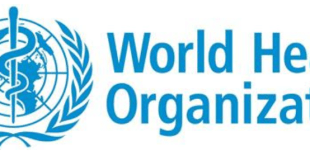Alliance for Water Stewardship (AWS) Platinum-Level certification is considered as the global benchmark for water stewardship
Bengaluru, 7 December 2022: ITC Limited’s Food Factory in Malur, Karnataka has earned the distinction of being the first Food facility in Asia to be awarded the AWS Platinum-level certification, the gold standard for water stewardship in the world. ITC’s state-of-the-art factory which produces noodles under the brand YiPPee!, was conferred the coveted certification in recognition of its responsible water management interventions. The factory has spearheaded development of integrated watershed development programmes for supply augmentation, demand side management by improving water usage efficiency in the catchment area of its operations as well as reduction of fresh water consumption within the Unit.
ITC’s 360-degree water stewardship programme is a part of the Company’s bold Sustainability 2.0 (S2.0) agenda articulated by Chairman Mr. Sanjiv Puri and is in alignment with the Government’s key water initiatives including ‘Jal Shakti Abhiiyan’ and ‘More Crop Per Drop’. ITC has earned the distinction of being the only global company of comparable dimensions to be water positive for over two decades. Going forward, the Company aspires to create rainwater harvesting potential equivalent to over 5 times the net water consumption by 2030 as a part of its S2.0 targets. ITC has also set a goal to achieve a 40% reduction in specific water consumption by 2030 as compared to the FY 2018-19 baseline. ITC has already committed itself to achieve AWS certification for 8 of its sites by 2024 and all its sites in high water stressed areas by 2035.
Commenting on this exemplary achievement, Mr Hemant Malik, Divisional Chief Executive, Foods Business, ITC Ltd said, “It is indeed a proud moment for all of us in ITC and we are deeply encouraged by this prestigious recognition for our efforts in achieving water stewardship. This significant milestone will further inspire us to scale up our initiatives to ensure water security for our stakeholders around our factories in line with the goals envisaged in the Company’s Sustainability 2.0 agenda.”
Aligned to ITC’s commitment to ensure ‘Water for all – today and tomorrow’, a comprehensive water conservation program has been undertaken both within the Malur Food factory and in the surrounding catchment area of 40250 acres, out of which, more than 75% is under agriculture. However, initially the factory faced challenges with regard to water availability in the area due to several factors like hard rock aquifer system, rapid urbanisation and change of agricultural patterns. This led to the Unit being largely dependent on tanker water. Understanding the criticality of the situation, ITC embarked on a water stewardship mission in the catchment, based on the recommendations from the groundwater assessment and detailed hydrogeological studies by external expert agencies. Accordingly, an integrated water management plan was initiated both within the Unit premises as well as in four watersheds surrounding the Unit.
Details of Interventions
1. Within the Unit, several measures have been taken to save water by ensuring maximum water use efficiency and reduction of freshwater consumption. Water conservation efforts within the factory included recycling, water recovery from steamer vapour exhaust, water-efficient fixtures, reuse of ETP treated water for gardening and toilet flushing, among others. These efforts have led to a reduction of over 27.5% in specific water consumption by the Unit.
2. At the catchment level, ITC’s 360-degree initiatives focused on better water governance. The aim was to improve water balance & WASH (Water Sanitation and Hygiene) outcomes for the relevant stakeholders. While 57% of the agricultural area in the region is under rainfed farming, the remaining area is under intensive agriculture with vegetable and floriculture crops which are cultivated round the year using groundwater irrigation. There were around 39 traditional irrigation tanks in the catchment apart from many minor water bodies which were under dilapidated condition due to poor maintenance as well as frequent failure of monsoons. This had led to severe depletion of groundwater making access to water difficult both for agriculture and other domestic needs of communities. Given the challenges, ITC aspired to create positive water balance in the catchment. The initiatives included supply augmentation and demand management, whilst creating awareness about WASH. Multi-dimensional interventions were carried out through community engagements in convergence with various government agencies and in collaboration with reputed research institutes.
a) Supply Side Initiatives included revival of traditional water bodies as well as construction of new water bodies and groundwater recharge structures in identified zones. ITC’s targeted initiatives in the region resulted in the formation of 16 Water User Groups, 35 WASH (Water Sanitation and Hygiene) committees and 534 Farmer Field Schools till date. Over 440 water harvesting structures including 195 farm ponds and 52 check dams were renovated or constructed in the catchment area, creating a water harvesting potential of 3.34 lakh cubic metres benefiting over 4200 acres.
b) Demand Side Water Management focussed on capability building of farmers and promotion of water efficient practices such as micro irrigation, mulching, among others. Improved irrigation practices and capability building were adopted by farmers in around 6500 acres, resulting in water savings of nearly 11.92 lakh cubic metres.
c) As part of WASH, ITC initiated awareness generation campaigns on the need for improved sanitation. Relevant sanitation infrastructure was also created in 35 schools & 25 Anganwadis in association with the Government, impacting over 3000 children.
The Alliance for Water Stewardship (AWS) is a global membership collaboration of businesses, NGOs and the public sector driving water stewardship, which is defined as the use of water that is socially and culturally equitable, environmentally sustainable and economically beneficial, achieved through a stakeholder-inclusive process that involves site-and catchment-based actions.
 Newspatrolling.com News cum Content Syndication Portal Online
Newspatrolling.com News cum Content Syndication Portal Online





